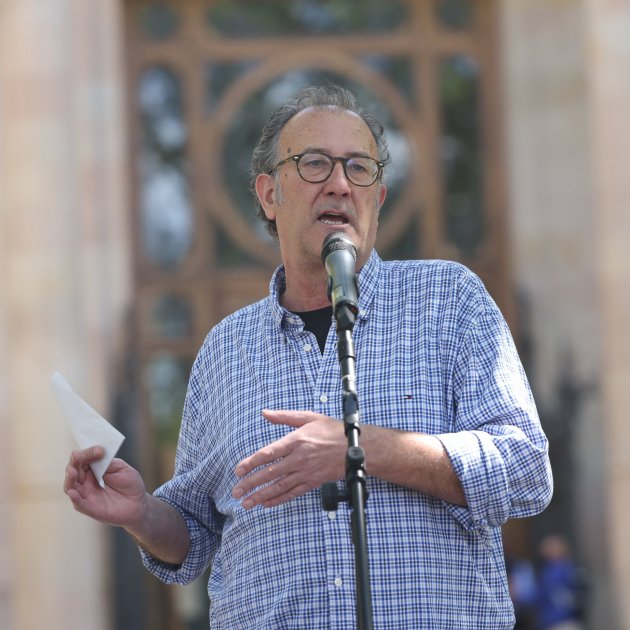A new move against court intervention in Catalan classrooms. The leading Catalan cultural association, Òmnium Cultural, will appear as an interested party in the Catalan High Court (TSJC) against the ruling forcing the "immediate" imposition of a 25% quota of classes taught in Spanish in Catalan schools. This was announced this Friday by the president of the organization, Xavier Antich, in a media conference at the closing of the Sambori festival, an event attended by more than 1,000 students from around the country who presented audiovisual, theatrical and literary works in the Catalan language.
Antich explained that they will appear "in defence of all students and families" in Catalonia, without excluding anyone and regardless of their usual language, as the entity considers that the courts should not impose a doctrine of percentages on schools. The appeal, which Òmnium intends to file in the middle of next week, aims to stop this 25% ruling: "We must exhaust all the means at our disposal, including the legal ones, to defend the right to a school in Catalan for everyone. Because the language is and must continue to be a backbone of this society," said Antich.
VIDEO: Xavier Antich of Òmnium: "We mustn't make the mistake of leaving alone the students, teachers and families in the face of the offensive against the Catalan language"
He was critical of the strategy of imposing percentages on schools, which in his opinion only seeks to fracture Catalan society "using schools in a despicable way", and in the face of the Spanish courts' offensive, called for civil society to organize and "give a clear and forceful response." He also explained that the legal services of the cultural organization are working on a "very well-argued" legal challenge, and that Òmnium, "as the leading civil society entity in the country", wants to appear as an interested party, to refute and leave without effect "the absurdity of the ruling".
Asked why the body has not attempted to appear in the case till now, since the ruling has existed for some time, Antich explained that what opened the door to the possibility of appearing was the fact that the TSJC had allowed other groups to enter the case as interested parties, as was the case with the Asociación por una Escuela Bilingüe, whose acceptance by the court as an interested party was the prelude to the court's decision issuing a new ultimatum to the Catalan education department to put the ruling the sentence into practice in schools.
Reform of language policy law
It was last Monday when the court issued its new instruction for "immediate" application of the 25% Spanish language quota, and education minister Josep Gonzàlez-Cambray stated that his department would file an appeal for reversal of this new order. At the same time, this week there has been a debate in Parliament over the reform of the Language Policy Act, initially agreed by the PSC, ERC, Junts and the Comuns. In the end, Junts confirmed that they were opting out of the pact, causing a new uncomfortable chapter between the two partners in the Catalan government. Over this issue, Òmnium limited itself to calling for responsibility and making it clear that any initiative "needs as much consensus as possible".
